According to what I heard, Baba Vanga (1911-1996) was a prophet who brought peace and healing to people. When she was a teenager, she was sucked up by a tornado into the air and dropped to a field causing her eyes to bleed. She lost her eyesight since then, but she also became a clairvoyant after that incident. She passed away in 1996, one year after a church in her name was built beside her house in the town of Rupite. Many famous people visited her from all around the world, and she seemed to be correct in a few U.S. presidential election predictions way after her death, but not correct regarding World War III, which we hope would never happen.
Regarding the accuracy of a prophecy, personally, I would agree with Dolores Cannon (1931-2014) that a prediction was often based on the trajectory of current events, but everyone had free will and things could change. Also, time could be a man-made concept, and oftentimes predictions might be better evaluated by events but not time. I remember listening to a podcast when Dolores explained how she went to Bulgaria to be awarded the Orpheus award for the highest advancement in the research of psychic phenomenon as the first and only foreigner awardee. I can’t seem to find a list of the past awardees of this award, though, although there were several music and film awards in the name of Orpheus. Understandably Orpheus was one of the most famous Thracian on the Bulgarian land, with legendary abilities and wisdom. Anyway, Dolores recalled the story how the Bulgarian guy who helped her during her trip in Bulgaria and also the subject of a past life regression session videotaped for a documentary turned out to be someone who borrowed the scrolls from the Library of Alexandria when Dolores was the one managing the scrolls there. Believing it or not, it was a fun story. Dolores’ explanation would justify Baba Vanga’s prediction results, and it is very likely that the people, collectively, had shifted the course of the mankind for the better, and we hope that no more world war would happen.
Baba Vanga later had an office in the town of Petrich, and another museum was established there for her, exhibiting the gifts from many visitors, celebrities included. Well, we only got enough time to visit the museum in Rupite, although Rupite and Petrich are not too far away from each other, in the southwest of Bulgaria, close to the town of Melnik and the Greece border.
It was much warmer in Rupite than in Sofia, and there was thermal mineral water on site. The water straightly out of the ground was too hot to the touch as it was, so the fountain there provided a second hose of the somewhat cooled down mineral water. The mineral water in different places has different chemical compositions, and the water in Rupite tasted quite different from the water in Sofia.
There were three small ponds cascaded in the yard. In the first pond we saw, there were lots of turtles swimming in the water. In the second pond, quite a few turtles climbed on top of the rocks above the water instead of staying in the water. Finally when we got to the third pond, we understood why. The third pond was where the hot mineral water gushed out, and it was literally burning. Even in the second pond, the water was too hot for anyone to stay in for too long. Only in the third pond, the water was cool enough. No wonder turtles in the second pond wouldn’t want to stay in the water. Well, the turtles were all nourished by the mineral water, and it was so peaceful to see them enjoying themselves in or out of the water.
On the way leading to the museum, local people had made it a road-side market of all kinds of produce and products.
One of the people who visited Baba Vanga in 1942 was the Bulgarian leader, Tsar Boris III. There were so many stories about Tsar Boris. One event was that someone plotted to explode the St Nedelya Church during a funeral that he was supposed to attend to assassinate him in 1925. The explosion killed 150 people and injured 500 others, and yet Tsar Boris escaped. The reason for that escape was that he was late for the funeral. There came a Bulgarian saying that “Being late can save your life.” Who could argue with that? Later on, it was still under Tsar Boris’ rule, many church leaders and government leaders decided not to deport the Jews in Bulgaria to the death camps, and they used excuses upon excuses to delay the deportation when they had to respond to the Nazis, and eventually saved about 48000+ people, although there were still 11000 people who died during that period sadly.
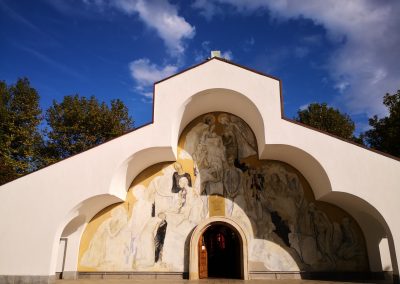
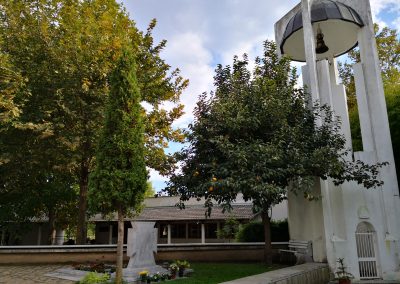


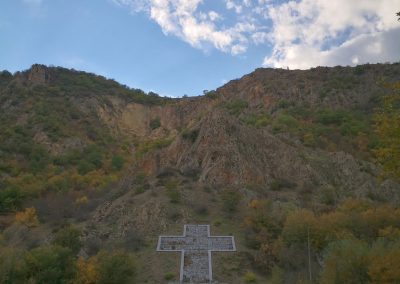

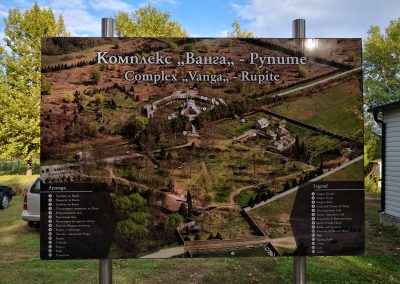



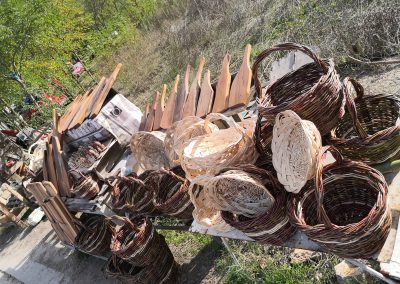

Recent Comments